My second objective in coming to Palermo was to explore further the legacy of the Whitaker family, an English family who built an immense fortune on the marsala trade during the 19th century. They became the wealthiest family in Sicily, active in New York real estate, American railroads, the spice trade, shipping and more. They left behind many legacies: the archeological site of Mozie, a Phoenician harbor, villas throughout Palermo now used as a hospital, government offices, etc., and the Villa Malfitana and its gardens.
The Whitaker family coat of arms in Villa Malfitana. The three diamond motif is common to Whitacre/Whitaker designs. The horse is a special symbol to this branch of the family,
My connection to the family is remote. My great great grandmother was Catherine Whitaker from Phildelphia, who was a homesteader in Nebraska, as described in my book, The Elk in the Glade: The World of Pioneer and Painter Jennie Hicks. Her ancestor were born about ten miles from where Joseph Whitaker of this branch was born, and was also named Joseph. So, our family connection is probably 200-300 years old.
Villa Malfitana, an Arte Nouveau masterpiece, was built in the late 1800’s and entertained kings and queens during the Belle Epoque. Their full story is told in Princes Under the Volcano by Raleigh Trevelyan. The house is now owned by the Foundazione Giuseppe Whitaker. I was given a tour by the foundation’s architect, Gosaldo Missmina, an amiable, knowledgable guide.
Gosaldo Missmina with the “Colonna Tapestries”, depicting scenes from the Aeneid.
The Louis XIV-style main drawing room. Every room has a fireplace. The villa was only used from September to May, after which the family traveled to England for the season, and to avoid summer heat.
The villa is surrounded by semi-tropical gardens.
The Fondazione Whitaker website has more info and pictures. You can choose to read it in English on the opening page. Unfortunately, Mozie, the archeological site down the coast from Palermo, was closed for the time being. Mozie was a passion project of Giuseppe Whitaker, who uncovered the remains of a major Phoenician port there.
Another legacy in Palermo is the Anglican church, built 150 years ago this year by the Whitaker family. The congregation is a staunch community of expats, many of them permanent, who fell in love with Palermo and have lived there a long time. The Anglican church has been especially prominent lately after Archbishop Budde at the US National Cathedral spoke truth to power by asking Donald Trump to be merciful. I attended services there, and enjoyed the welcoming community.
Church of the Holy Cross, Palermo
This item is on display in the smoking room at Villa Malfitana:
This was a cutting-edge device 125 years ago. A young woman walked up and asked what it is. I knew that moment would come, when something that has been a key part of my life would be a mystery to a new generation. It reminded me of my poem, “Night Writer”, in my current collection, Good Housekeeping:
Night Writer
August. I am sleepless and stuck in Rome,
working a job from someone else’s dream.
Tossing off clinging sheets I go to the window
and widen the shutters for more air.
Faint stars sprinkle the golden dome of Roman night,
its fetid haze of hiatus.
Their lights are almost audible in the vacated silence
of cats hunting the ruins, of the red-lamped naves.
The sweet mountain zephyr—
and only on this sea does “zephyr” pertain—
descends from the hills,
flushes the day’s dry heat out to sea and
soothes my beaded brow.
A rat-a-tat-tat catches my drowsy ear:
a drumbeat, then a cymbal—someone is typing.
From my aerie the stories of windows
wrap around the courtyard in a 1930’s grid.
Geometry was progress then.
One or two lit windows sentinel the shadows.
The erratic rhythm almost echoes, traceless.
It is a sound soon to be silenced for all time,
that tap-tap-tap-ching of the 20th century lyre.
It calls to my storyteller, my bard, my troubadour.
I listen and yearn to take a seat,
to crank a slice of paper and carve with those keys
a lament, a tirade, an epic launched
by a golden apple, a lullaby…
or how it feels to gaze out on an August night and hear
someone’s mind at play, inviting me along
to leap from this life and incise a new story.
The legacy of a fortune like this is complicated. Sicily was greatly impoverished in the 1800’s after centuries of expolitation and remote rule. The Whitakers seized a moment and made the most of it. Marsala at the time was the largest selling wine in the world, especially popular in the US. The Whitakers supported Garibaldi and Italian reunification. One of them married Mussolini’s Minister of War. Their heyday was Belle Epoque Palermo, when it was a popular destination for European elites. They knew the Lampedusas and many other leading figures in literature, politics and society of the time. Giuseppe’s scientific interests in birds, archeology and other areas have had lasting impacts in discovery and preservation. Regardless of any remote family connection, the story itself has fascinated me for over 30 years. Seeing these sites fulfilled long-held aspirations.
We left Palermo for Rome. At the airport, people played a grand piano from time to time. This fellow played especially well. From the grim bunker of the Maxi Processo to this gentle tune, I have seen how Palermo has overcome a history of exploitation and crime to become the vibrant, exciting place it is today, a prism of many facets.




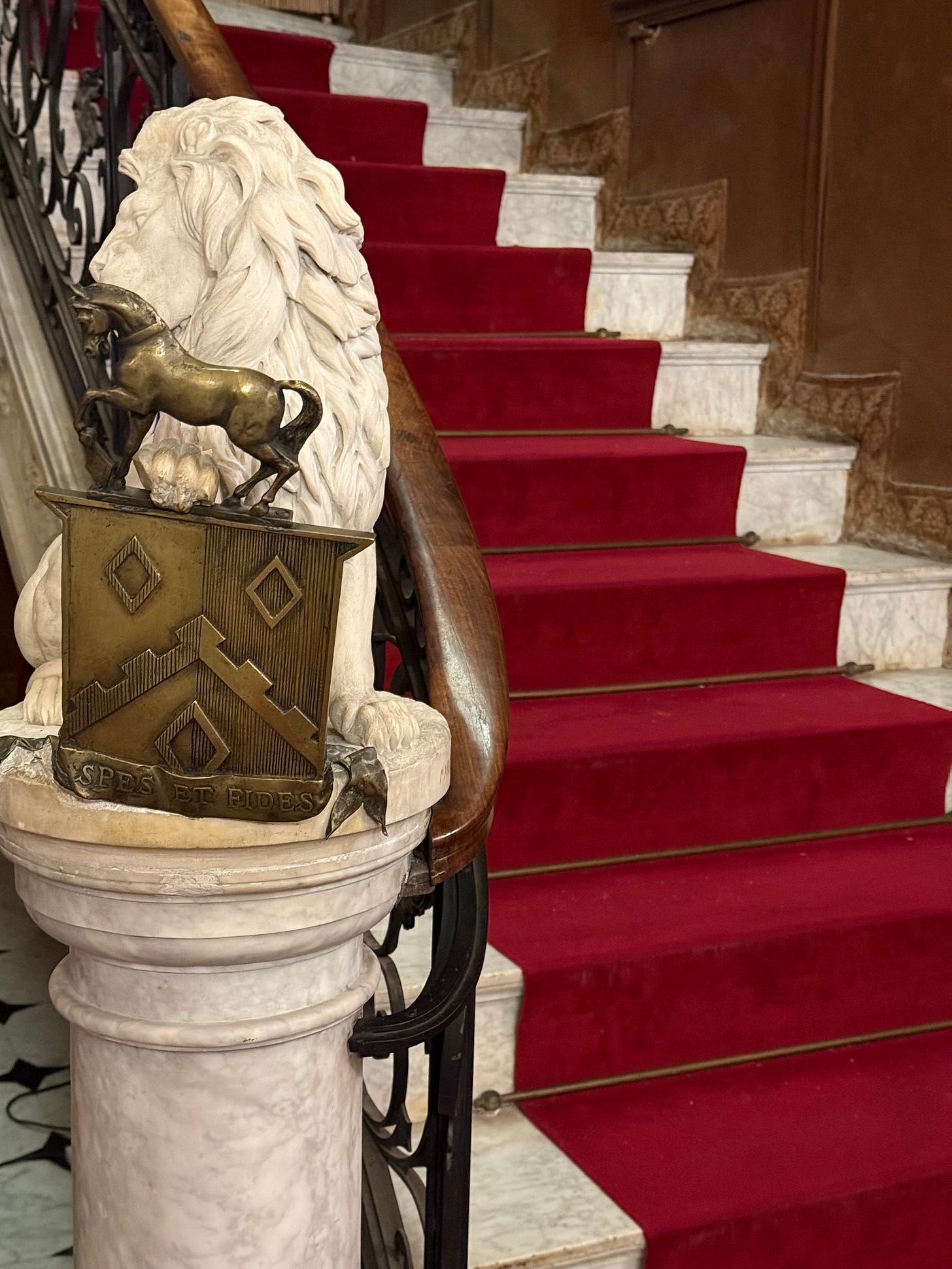
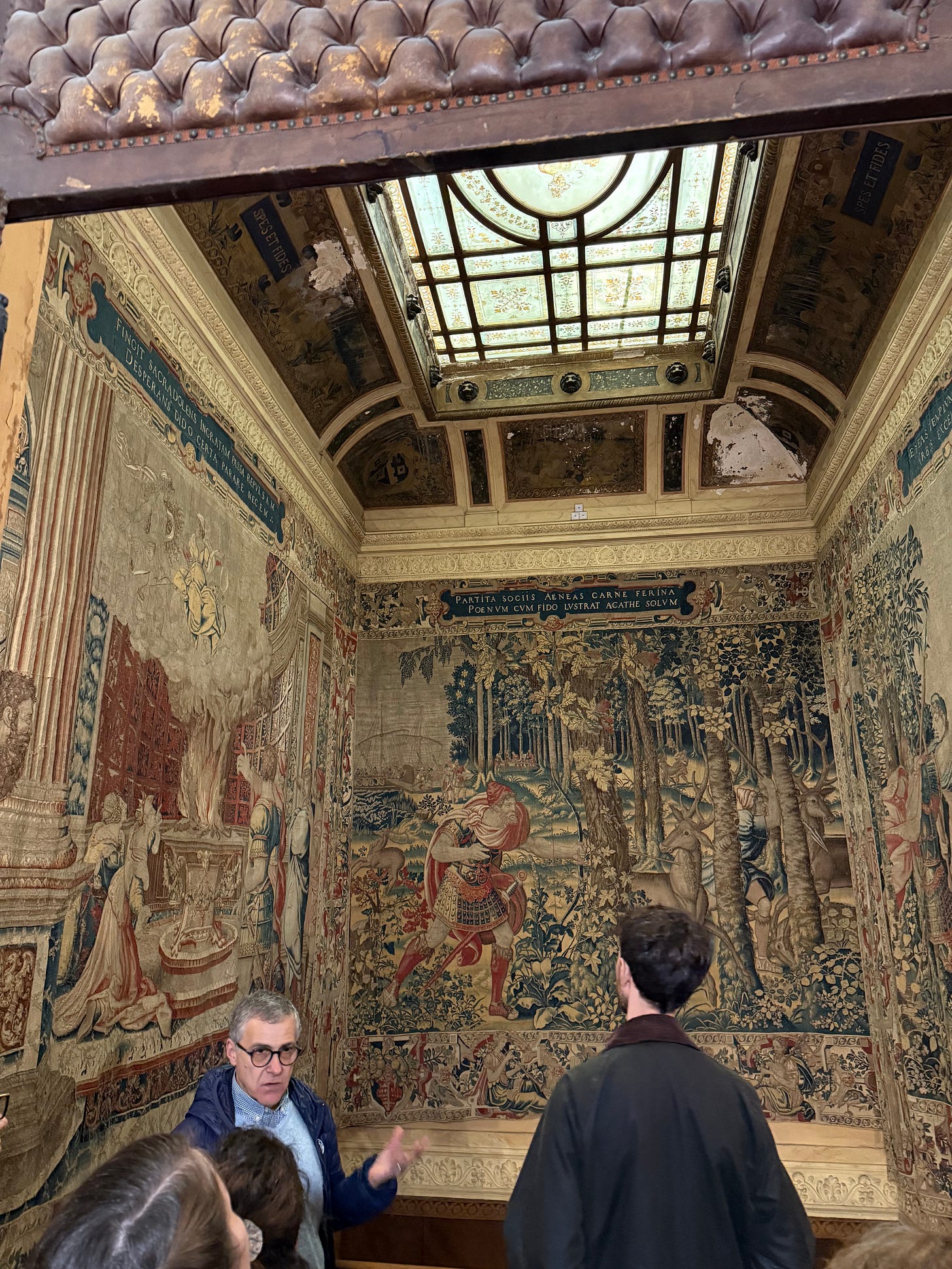
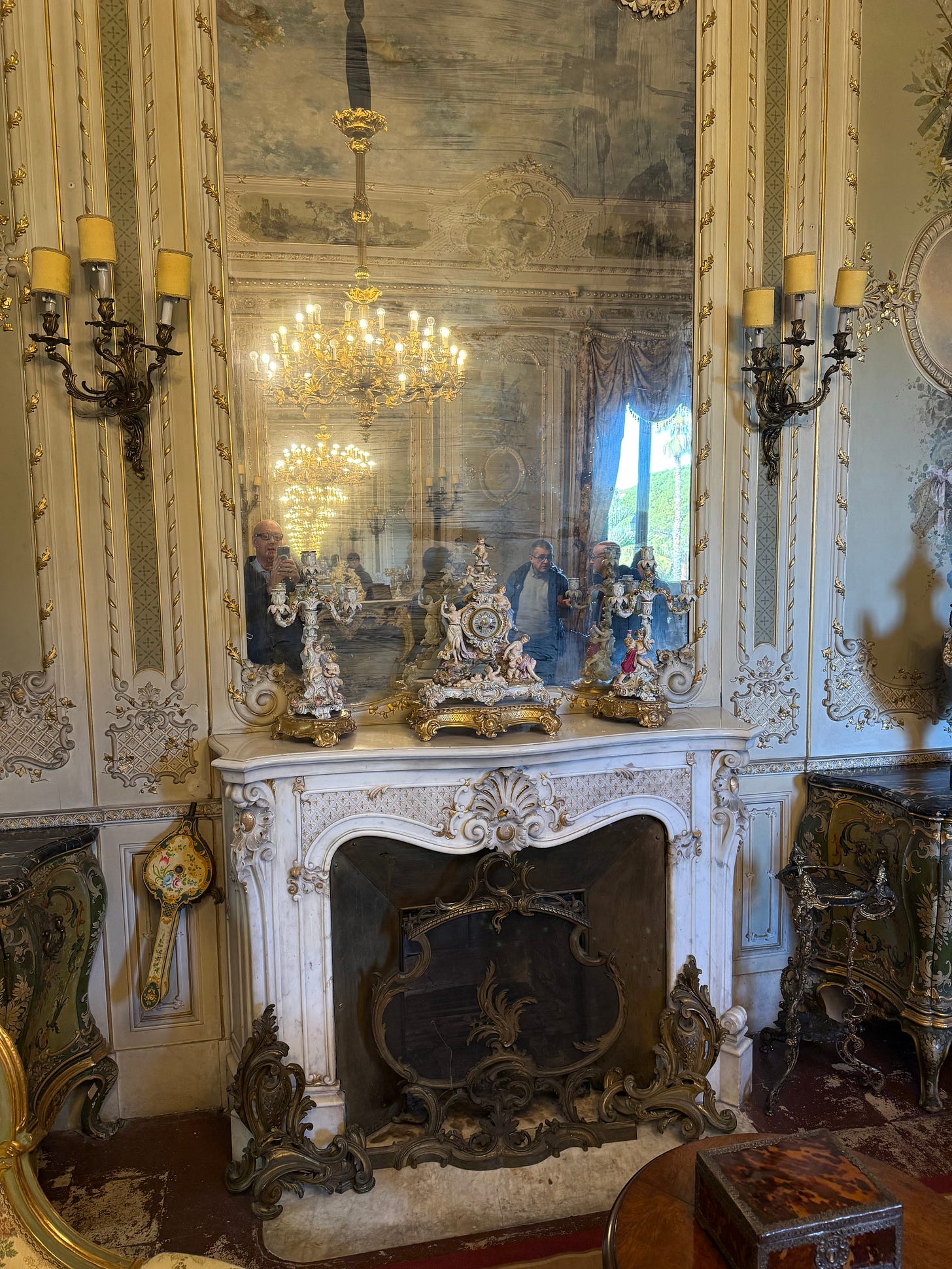

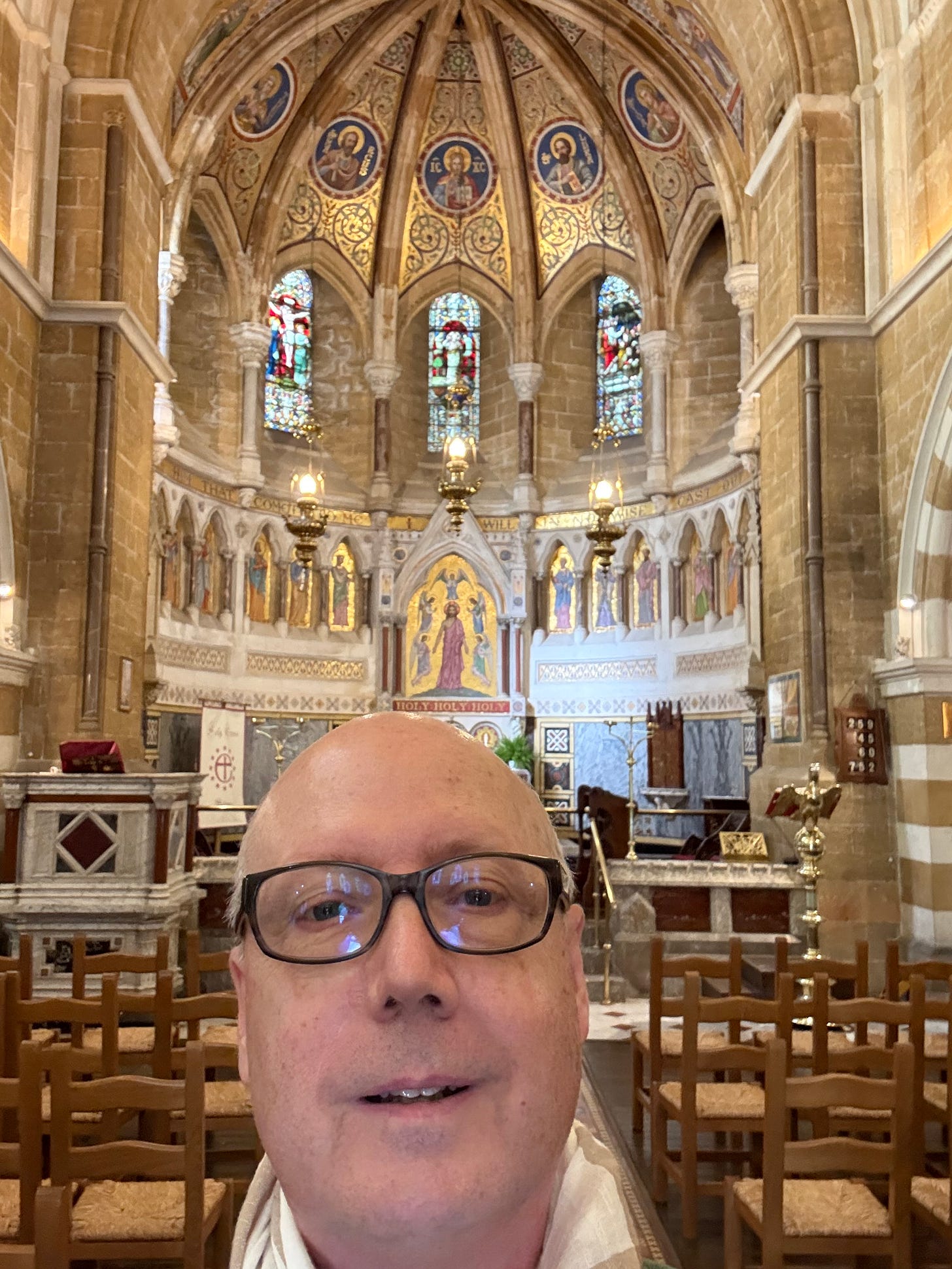
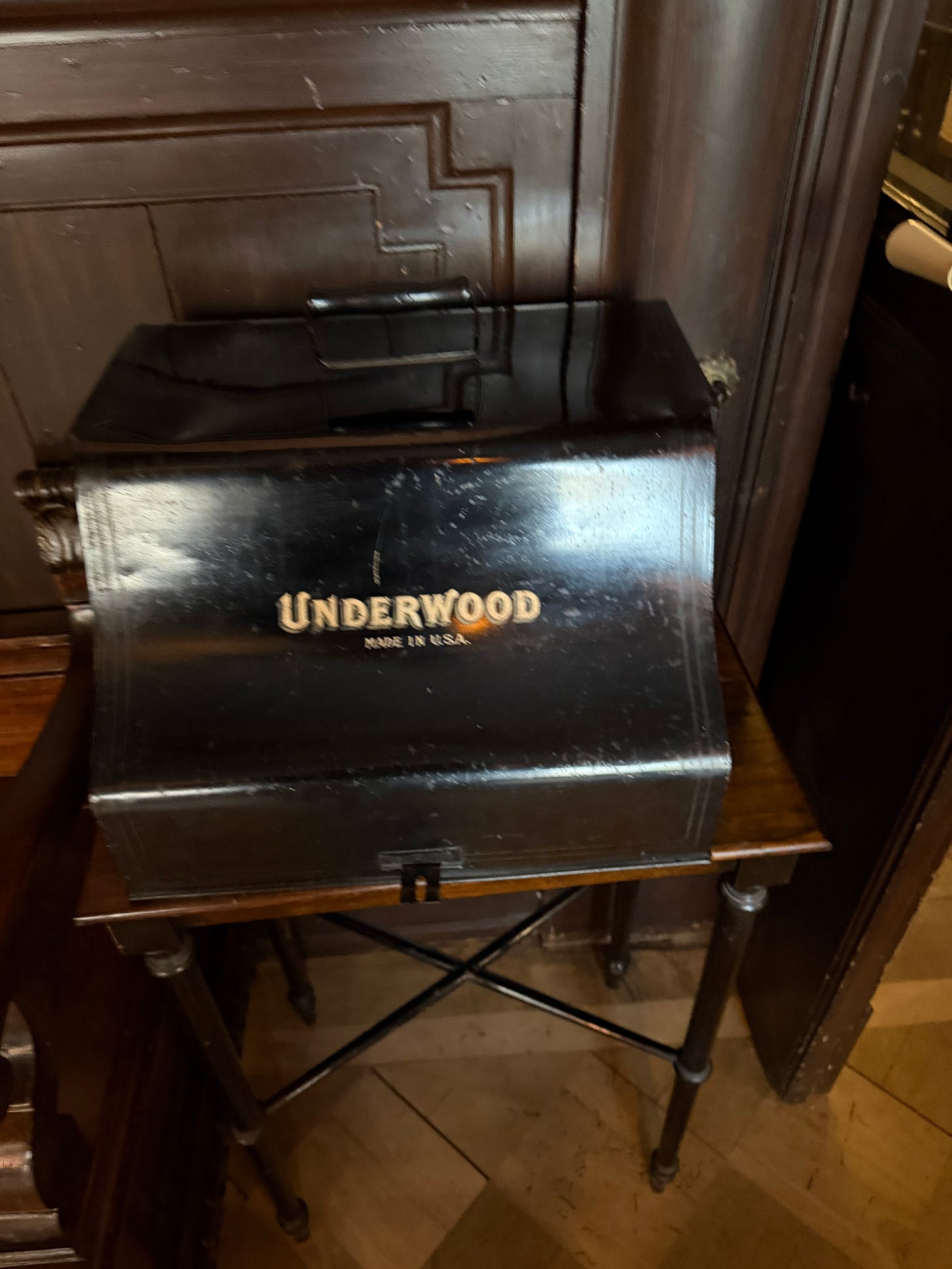
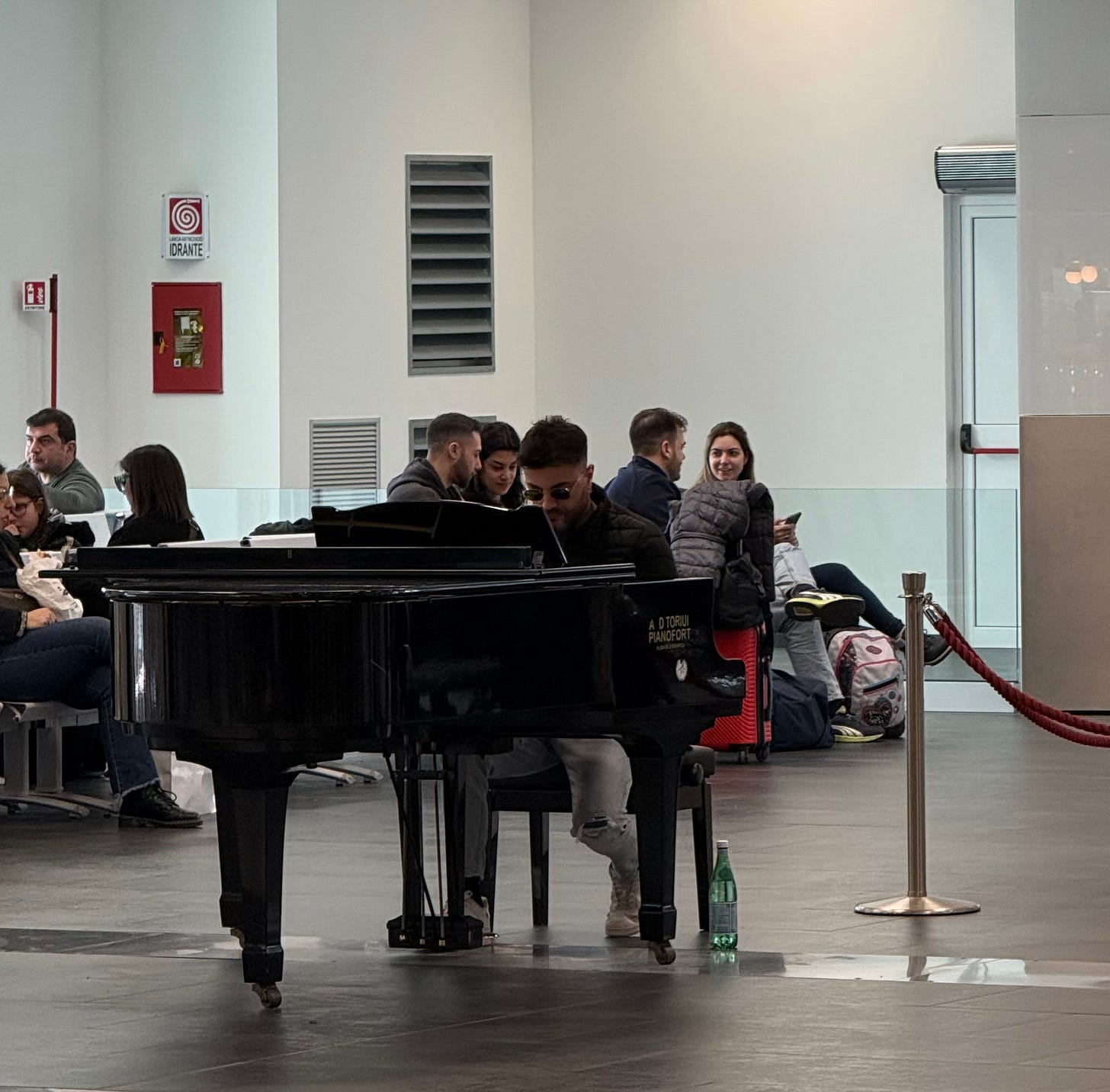
amazing history of your familia.